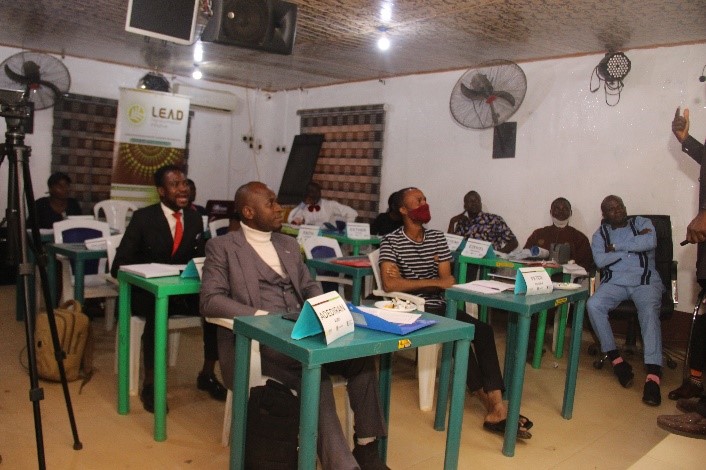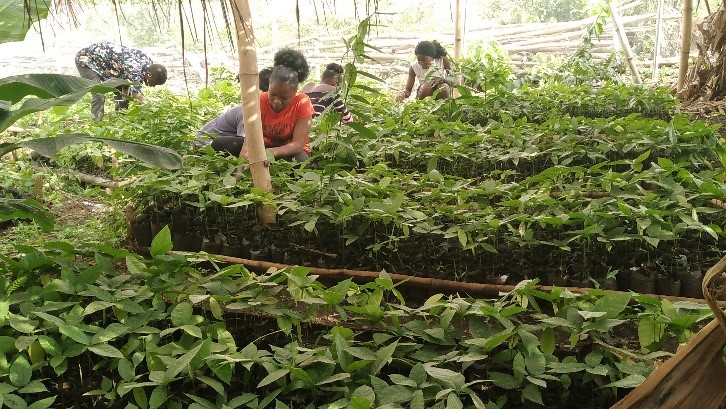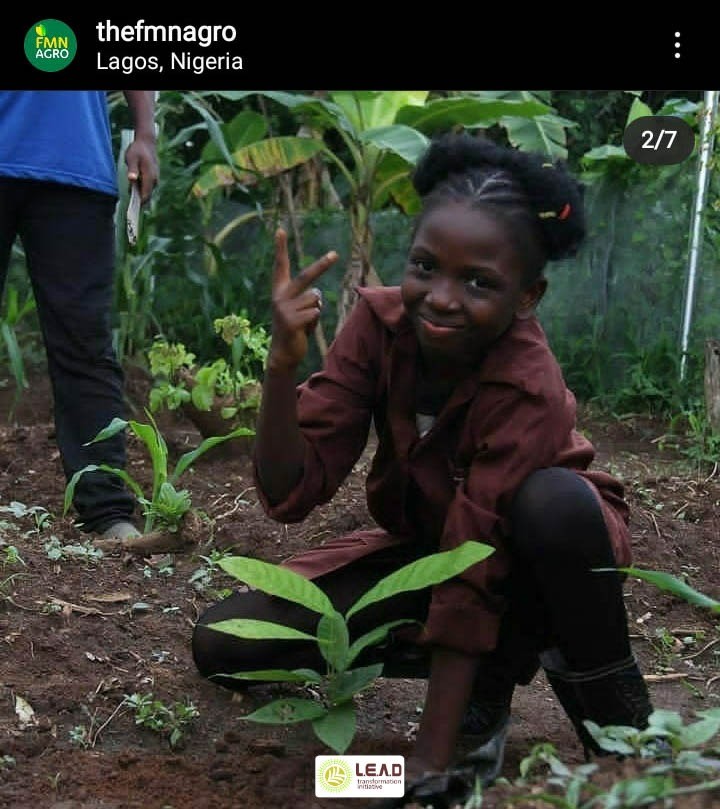Our Journey So Far
Between 2017 and 2021, LEAD Transformation Initiative has reached out to over 6500 people (youth, rural farmers, women and kids) with its awareness campaign, workshops, in-class and hands-on trainings to drive its vision of raising transformed minds that are creating sustainable development in the rural and urban communities of Nigeria starting from Ondo State.
Our projects span across Gender Inclusion, Youth Development and Rural Community Development and we use Transformational Education and Climate Smart Agriculture as unique tools to achieve our vision.

Our project, Sustainable Development Bootcamp a six months agric-inclined transformative program has trained over 181 youths on agribusiness development from which 43 startups have emerged mostly along the agricultural value chains.
Our School of Ideation formerly Idea Spark, a one-week transformative short course has trained about 284 youths on process of ideation, about 98 of them moved to incubation while 29 have commenced sustainable projects and enterprise.
Our Food Forest concept which include Teensgrowforest, Youth Grow Natural and Mariwo Natural has reached out to about 2000 high school students, 605 youths and over 843 farmers in the rural and urban communities respectively.
Through the food forest concept, we have created rural co-working spaces in
Ondo and Osun State where youths and rural farmers work hand in gloves, exchange scientific knowledge and indigenous knowledge using agroforestry as a tool for healthy food production, environmental protection and job creation. We have produced and sold over 48,000 tree seedlings from which we have directly planted over 12000 trees with the joint efforts of youths and rural farmers to offset carbon in Akure South and Ifedore LGAs of Ondo State and Isokan LGA of Osun State. The food forest gives regular produce such as Honey, Vegetables, Tubers, Fishes, Poultry products and some other staple food items with which the farmers and youths are generating livelihood.
The Youth Grow Natural project has trained over 388 youths on practical
agriculture who are now motivated to become actors in our food system and climate actions. The trained youths are now actively involved in our project Teensgrowforest where over 2,000 high school students are exposed to career opportunities in agriculture from which 193 of the students showed interests in practical agriculture. In one urban high school where practical agricultural training as gone into extinction, a 3 hectares school farm was restored to improve the quality of agricultural education in the school, young farmers club was initiated for management of the farm and also supply part of what the school’s kitchen needs. This catch them young move have produce an award winner at the plant a seed competition of the Flour Mill Nigeria Plc.
The Mariwo Natural project has trained over 33 farmers in Mariwo community
on Agroforestry who are now using the knowledge acquired on their respective
farms to produce food and to combat climate change, and exposed about 30 rural farmers in Apomu community to Vegiforestry. Some of the rural farmers who are part of the people that illegally fell over 70,000 trees in the Ifedore LGA forest now understand the importance of trees cum forest and have planted over 2700 trees back in the depleting community forest with the potential to plant more trees with time.


Project Agrogender Development exposed 133 women to agroforestry and agricultural value chains development from which 50 rural women have developed interest and returned to farming. The project also trained over 500 women led businesses in Apomu on financial literacy and business management to make them withstand the effects of COVID 19. With the provision of soft loan by LTI, 44 of the rural women businesses got improved.
Selected 84 rural kids with low career ambition, poor hygiene and low self-esteem are getting educational support services on ICT, career path development, personal hygiene, sexual reproductive health and rights under our Smart Farmers’ Kids project.
Gender RIDE reached 1,996 high school students on career path development, sexual reproductive health and right from which 395 female students from two high schools got trained in reusable sanitary pad production to reduce absenteeism in school during their menstrual period.
SLEDT Nigeria and SLEDT Rwanda has trained over 190 student leaders on good leadership, healthy food production, climate action and agribusiness development who are now climate ambassadors.
While Project Financial Inclusion has given soft loan to 61 rural and peri-urban micro businesses.
